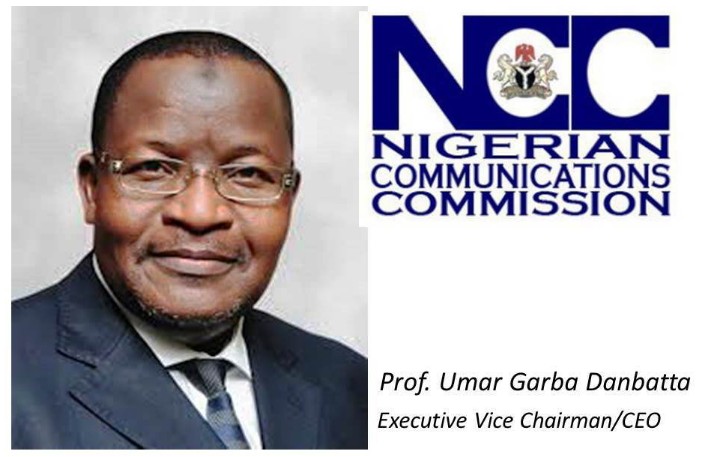Nigeria is the powerhouse of the telecommunications in Africa, says the Executive Vice Chairman/CEO of the Nigerian Communications Commission (NCC), Professor Umar Danbatta.
According to him, Nigeria has 82 per cent of the continent’s telecom subscribers and 29 per cent of the internet consumption in Africa.
He also disclosed that nigeria was rated 11th globally in terms of internet penetration and seventh in terms of mobile phone usage.
Danbatta made the disclosures, on Thursday, at the commencement of an ongoing two-day workshop on “Emerging Technology and Forum for Telecommunication Industry”.
The workshop, organised by NCC, is focused on examining the issue of improving the ranking of Nigeria on the Global Network Readiness Index (NRI).
The NCC boss was represented at the workshop by the Commission’s Director of Spectrum Administration, Engineer Abraham Oshadami.
“Despite these remarkable metrics, the fact that our Network Readiness Index (NRI) ranking for 2022 is 109th out of 131 countries is both humbling and challenging,” he added.
The NCC EVC/CEO explained that the NRI is a guiding metric that measures the role and impact of Information and Communication Technology (ICT).
“It explores the performances of 131 economies in four key categories: technology (infrastructure), governance, people, and impact.
“As agents of social and economic transformation in our nation, prioritising network readiness is not only a strategic necessity but a mandate,” Danbatta said.
He said deliberations at the workshop will engage in thought-provoking discussions that will explore the foundational pillars of NRI.
This, he said, would be done through presentations by renowned professionals in the technology landscape.
“As we convene here today, the innovation symphony resonates with our common goals.
“The Emerging Technology Forum acts as a beacon, directing us towards the intersection of transformation and advancement,” he added.
Earlier in his opening remarks, Head of New Media and Information Security Department, NCC, Engineer Chidi Diugwu, said the aim of the forum was to establish a NRI.
This, he said, would be done by exploring the driving factors of emerging technologies and further examining the sustainability and barriers of the NRI’s four pillars – Technology, People, Governance, and Impact.
He described the NRI as an invaluable tool for identifying gaps, stimulating action, structuring policy dialogue, and tracking ICT readiness over time.
“The tech industry is a focal point of Nigeria’s growth, demonstrated by the recent investments in infrastructure and digital services.
“Statistics from the National Bureau of Statistics (NBS) indicate that Nigeria’s ICT sector contributed up to 14.07 per cent to the total GDP in the first quarter of 2020. This had grown to 17.47 per cent by Q1 2023.
“The Federal Government’s focus on the tech industry, particularly on fostering the advancement and growth of technology, especially emerging and new technologies, is highly commendable.
“This is one of the objectives of the NCC in its strategic pillar: Promotion of Digital Economy and is cascaded to the New Media and Information Security Department as one of its critical mandates.
“This goal of enhancing the productivity ecosystem, is expected to result in a significant boost to the nation’s innovative capabilities in the coming years,” Diugwu said.
He also disclosed that there has been remarkable development in Nigeria’s ICT infrastructure in recent years, with skyrocketing mobile penetration rates, and internet connectivity expanding drastically.
He said the commitment of NCC to enhancing network infrastructure, coupled with the private sector’s contributions, has significantly transformed the connectivity landscape.
Diugwu noted that the NRI is not just about the latest technologies or high-speed internet access.
He said it also included elements such as affordability, digital skills, and the availability and adoption of digital services in various sectors of the economy.
He admittedly said: “Nigeria’s performance on the NRI index from 2020 to 2022, as reported by the Potulans Institute, indicates a mixture of improvement and challenges that still persists.
“Thus, applying the NRI in the telecommunication industry is of paramount importance in our current digital ecosystem.
“Utilising the insights it brings allows us to amplify our strengths, address our challenges, and propel our nation into a brighter digital future.
“However, despite the importance of NRI in channelling the strengths and opportunities of our tech ecosystem, it is imperative that the metrics are localised to reflect our current realities,” Diugwu added.
In his introductory remarks, NCC Executive Commissioner (Technical Services), Engineer Ubale Maska, said the forum primarily sought to provide standard roadmaps and best practices which can be used to measure the impact of ICT on the society and promote the adoption of new technologies.
“We will review the latest findings of Nigeria’s NRI, explore various barriers and key drivers to the implementation of innovative technologies, and ultimately create actionable solutions to help move the industry forward.
“We live in rapidly changing times where the proliferation of digital transformation and the use of ICTs are inevitable.
“With the world becoming increasingly interconnected and our economic activities relying heavily on the digital space, it has become essential for countries to be at the forefront in terms of technology adoption.
“This is why the NRI is so important to measure the progress of a country as it relates to ICTs and digital transformation.
“Nigeria’s NRI is a strong indicator of how the country is adapting to the digital transformation that is happening all over the world. It will help us access our progress and position on the global digital train.
“This forum seeks to examine the different barriers and key drivers of emerging technologies as far as the Nigerian telecommunications industry is concerned.
“We intend to explore the challenges that are present, and to discuss solutions to ensure that Nigeria is making the most of the digital transformation.
“In the end, this forum should provide us with valuable focal areas of discourse, with the hope of discovering innovative and effective ways of improving the NRI in Nigeria,” he said.
Maska also said the discussion should discuss how the NRI can be used as a key tool for assessing the development of the telecommunications industry.
He added that it should deliberate on how the NRI can be used to inform decision-making relating to technology and network readiness.






























